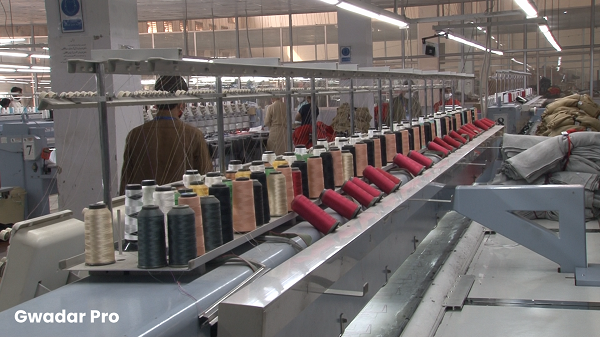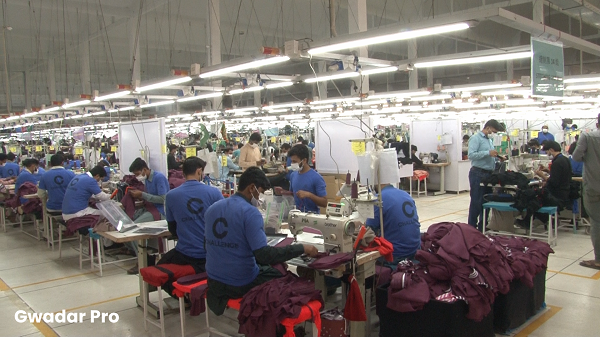Pak-China cooperation to enhance textile sector

Textile mill. [Photo/Gwadar Pro]
LAHORE, Aug.16(Gwadar Pro) - “Firstly, the relationship between Chinese and Pakistani governments is very good, and people's relationship is also very good. We feel like more comfortable to invest in Pakistan,” said Karen Chen, manager director of Challenge Fashion, a Chinese company that is investing $150 million in an industrial park on Lahore’s border with Kasur.
As a foreign direct investment (FDI) in an export industry in Pakistan, the project is made by the Shanghai-based Challenge, which is already operating as Challenge Apparel since 2017 with its garment manufacturing unit on Multan Road near Lahore fetching nearly $44m in export revenue during the last fiscal year.
The industrial park is set to house state-of-the-art fabric units, dyeing facilities, and garment manufacturing units for exporting sportswear from Pakistan to the Americas, Europe, Asia-Pacific, and other regions of the world.
Pakistan has a lot of benefits in the textile sector, like rich labor resources and inexpensive labor costs. Pakistan was given the Generalized Scheme of Preferences (GSP) Plus by the European Union, and also signed the free trade agreement with China, as Chen said. So it can access a very big consumer market in the world.
“So this is a good location to expand production and manufacturing base,” said Chen, citing the reason for the investment in Pakistan.

Staff working at the textile mill. [Photo/Gwadar Pro]
However, the textile sector still faces challenges ahead. Pakistan’s cotton crop production has seen an immense decrease in the last 5 years due to pests, weed infestation, low yield seed, climate change, technological backwardness, improper IPR regime, less technology transfer, etc.
To tackle this issue, American cotton is always considered as a replacement. “Therefore, we import from America, India, and sometimes from China,” said Tariq Mehmood, GM Sales, Glamour Textile, adding that “but importing costs us a lot.”
Talking of Pak-China cooperation, Tariq Mehmood said that China has played an important role in our textile industry as now all the metal items are imported specially from China, as well as advanced production machines.
In this regard, Chen also mentioned that “right now there’s only garment factory and then we buy fabric from overseas or source fabric locally, it's always very painful. So we're looking at this industry park to be a regional supply chain park. We will invite more Chinese accessory companies. You need to have people make zippers, labels, buttons altogether. You don't need to wait for the supply from China if anything happens.”
Chen also said industrial park is a good way to attract foreign investment. Chinese companies took as an example, "sometimes Chinese company comes to an industrial park, but two years later they still cannot operate because there is no gas and electricity supply. While in China, electricity, sewage, water, WiFi, mobile, internet, a lot of things need to be ready, and then companies come, they can just plug and play."
Currently, the company employs around 3,000 workers, including 28 Chinese nationals. Once the industrial park becomes fully functional, the company would have created nearly 10,000-11,000 new jobs. Besides, “we estimate in five years later, we can reach around $400 million export.”
In terms of the future development of the textile industry, "it's the right time that Pakistan can take this opportunity to attract foreign investment to build the accessory business in Pakistan, and to develop more places to grow cotton, improve the cottonseed quality for better cotton,”Chen added.




